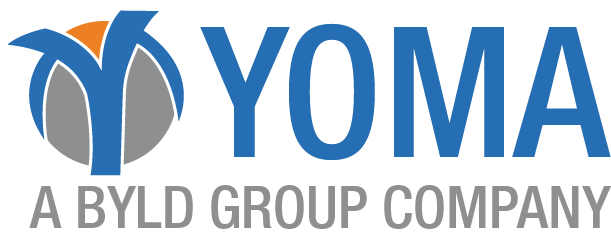Adaptability has emerged as one of the most important qualities a company can have in the competitive and fast-paced world of today. In the face of swiftly evolving markets, lightning-fast technological breakthroughs, and constantly shifting consumer demands, businesses must maintain their flexibility. Temporary staffing solutions are among the best ways to accomplish this agility.
Businesses across sectors are increasingly relying on temporary staffing agencies to meet short-term workforce needs, address seasonal demands, and fill critical skill gaps. To make sure they always have the right talent at the right time, businesses are using temporary staffing services rather than making significant investments in long-term commitments.
What Are Temporary Staffing Solutions?
Temporary staffing solutions involve a strategic business model where organizations hire employees for specific periods or projects by partnering with specialized agencies. These workers are often called temporary or contractual employees and perform their duties under the direct supervision of the client company. However, their official employer remains the staffing agency, which carries the administrative burden of human resources.
This arrangement enables companies to concentrate their valuable time and resources on their primary business activities. The temporary staffing agency, in turn, takes on the full scope of responsibilities related to recruitment, payroll administration, legal compliance, and other essential administrative tasks. An extremely flexible, cost-effective, and readily scalable method of workforce management is the outcome of this division of labor.
Temporary staffing is no longer seen as a straightforward or reactive solution to short-term demands in the modern business environment. In order to achieve long-term, viable growth and enhance overall operational stability, it is now a sophisticated, strategic tool. Successful use of this model enables businesses to quickly adjust to shifting market conditions and preserve a competitive edge in a business environment marked by constant and rapid change. This allows companies to handle workload, employees and projects without taking responsibility and issues of permanent hiring.
The Growing Importance of Temporary Staffing in India
A global trend toward more flexible and project-based workforce arrangements is reflected in the remarkable growth of India’s temporary staffing sector in recent years. Rigid, traditional hiring practices typically lack the flexibility needed to effectively respond to quick changes in market volatility and business needs, as more and more companies realize. This inability to quickly scale the workforce up or down can be a major disadvantage in a competitive environment.
The success of start-ups, the rise of technology-driven businesses, and the other improvements in the business industry have made temporary staffing an important part of the industry. Businesses can maintain a streamlined, efficient, and performance-focused organizational structure with the help of these services. When it comes to budgeting and navigating uncertain economic times, businesses can use temporary workers to avoid some financial hurdles that come when you employ permanent staff, like benefits, hiring fees, and on-time payment.
Additionally, the temporary employment model is becoming more and more popular among India’s younger working population because it fits with their growing desire for flexibility and a variety of professional experiences. This creates a mutually beneficial, or symbiotic, relationship. Businesses gain access to a broad and motivated talent pool on an “on-demand” basis. Professionals can gain experience in a range of fields and occupations in the interim, which can ultimately hasten their long-term professional development. Both people looking for flexible career paths and companies looking for flexible talent may benefit from this model.
Read More – What are the Benefits of Using Temporary Staffing Services?
Benefits of Temporary Staffing Solutions for Businesses
- Enhanced Flexibility
The unmatched flexibility that temporary staffing solutions offer businesses is one of their biggest benefits. Companies can easily modify the size of their workforce using this model in response to fluctuating project workloads, seasonal demands, or unstable economic conditions. To manage increased customer movement and sales volumes during the busy holiday seasons, for example, a retail company can simply hire more temporary workers without overworking its permanent staff. By doing this, high service quality is maintained during crucial times and employee burnout is avoided. The company can easily maintain a lean and effective system by firing temporary workers at the end of the season. With this approach, short-term resources can be optimized to achieve the desired results.
- Cost Efficiency
Employing permanent staff has so many requirements on time payments, other benefits, and full salary payments.. However, outsourcing a large number of these financial and administrative tasks makes using temporary staffing services a far more economical option. Payroll, statutory contributions, and benefits administration are usually handled by the staffing agency. Because labor costs can be changed from fixed to variable expenses, this arrangement not only significantly lowers a company’s HR overhead but also gives it more control over staffing budgets. By facilitating more strategic resource allocation across numerous projects and departments, this improves overall financial efficiency.
- Access to Skilled Talent
Businesses can quickly access a large network of pre-screened and trained professionals who are prepared to start working as soon as they join by partnering with a temporary staffing agency. These organizations are proficient at giving required person with matching qualifications and skill set. Businesses that need specialized knowledge for specific tasks like marketing campaigns, accounting audits, or IT implementation will find this especially useful. Whether a business requires a technical specialist for a short-term project or administrative support to fill a gap, temporary staffing allows it to quickly and efficiently fill crucial skill gaps without the time-consuming and expensive process of sourcing, vetting, and hiring permanent employees.
- Reduced Hiring Risks
There are risks associated with the permanent hiring process, especially when it comes to the long-term performance of the new hire or the organizational culture fit. A systematic approach to reducing these risks is offered by temporary staffing solutions. Employers can use a “temp-to-hire” model to assess a candidate’s abilities, work ethic, and cultural fit prior to making a permanent position offer. By acting as a extended trial period, which reduces the possibility of a bad hire and the expenses related to possible turnover. Employers can select better choices and ensure that only the most successful and qualified candidates are added to the permanent team by allowing them to observe a candidate in a real-world work environment.
- Improved Productivity and Morale
With the dual objectives of proving their value and possibly landing a permanent position, temporary workers are frequently very motivated to show their competence and worth. Their concentrated work ethic, when combined with their specialized skills, can greatly boost an organization’s overall productivity. Additionally, a business can avoid overworking or stressing out its permanent staff by using temporary workers to handle increasing workloads. This encourages a happier workplace and a better work-life balance by sustaining the morale and productivity of the core team. The effective blending of full-time and temporary staff helps company to work better and give results even in a high-demand situation.
How Temporary Staffing Agencies Operate
Temporary staffing agencies are essential intermediaries that skillfully connect skilled workers seeking temporary or freelance positions with employers seeking workforce flexibility. Their primary goal is to expedite the hiring process by locating, screening, and assigning competent people to customer organizations in accordance with their particular requirements. Through this strategic partnership, companies are able to delegate a large percentage of their administrative and human resources duties.
The standard operational process of these agencies typically includes the following stages:
- Consultation and requirement analysis
The process starts when agency and company both discuss about requirements and locations with profiles. Now, the agency wants to fully understand the client’s specific staffing needs. This includes determining the necessary skills, the ideal level of experience, the project timeline, and the company culture in addition to job responsibilities. This thorough analysis enables the agency to identify and target the best candidates for the temporary position, resulting in easier integration and more successful placements.
- Talent sourcing and screening
Knowing exactly what the client needs, the staffing firm uses its wide network to find possible candidates. This process takes a multifaceted approach, including posting job openings on various job websites and social media sites, actively reaching out to industry professionals, and gaining access to a pre-screened talent database. Then, depending on the particular requirements of the client, candidates go through a thorough screening process that may involve interviews, skills evaluations, and background checks. By using this initial screening early in the hiring process, the client organization saves a substantial amount of time and money.
- Onboarding and compliance management
The staffing agency oversees the entire onboarding procedure after the client chooses a qualified applicant. Keeping track of court filings, contracts, and other necessary paperwork falls under this category. Since the agency is the temporary employees’ official employer of record, it is in charge of making sure that all applicable labor laws are followed in full. employment regulations. The client company benefits from peace of mind as a result of this careful attention to compliance, which protects it from possible legal and administrative problems.
- Payroll processing and employee support
A core function of the temporary staffing agency is managing all aspects of payroll for its temporary workforce. The agency handles salary processing, tax withholdings, and any applicable benefits. The organization offers its temporary workers continuous assistance during their assignment in addition to financial management. This entails answering any queries or worries that might come up, creating a happy workplace, and making sure the employee has a seamless and fulfilling experience.
Businesses can successfully avoid high employment costs by using temporary staffing companies to handle these important legal and administrative responsibilities. This allows companies to gain essential workforce flexibility and speed in filling positions, all while maintaining high standards of quality and regulatory compliance. A more focused and successful approach to accomplishing strategic business objectives is the result.
Read More – Temporary Staffing Agencies and its Growing Demand
Technology-Driven Temporary Staffing Services
In modern temporary staffing, technology has become a central and transformative force, reshaping how agencies operate and deliver value. They are substituting data-driven, scalable, and intelligent solutions for manual processes. AI-powered platforms, automated tools and data are used for efficient hiring and efficacy.
- AI-Powered Recruitment
Artificial reasoning is at the forefront of this technological revolution, enabling agencies to make the hiring process faster and more effective than it was previously.
- Faster and more precise matching: AI systems are able to match the best applicants with particular job requirements after analyzing thousands of resumes and candidate profiles in a matter of minutes. AI tools go beyond simple keyword matching by using machine learning to identify skills, predict job compatibility, and assess a candidate’s chances of success based on prior performance.
- Decreased bias: By concentrating only on a candidate’s credentials and abilities, AI can help reduce unconscious human bias. As a result, hiring procedures become more equitable, and a more inclusive and diverse talent pool is developed.
- Better candidate experience: Intelligent chatbots and AI assistants can handle initial candidate interactions, answer frequently asked questions 24/7, and provide timely updates. This makes the candidate’s journey better by ensuring prompt communication and speeding up the application process.
- Automated Onboarding
Automation makes the process of moving from a candidate to an employee much more efficient and seamless.
- Paperless workflows: Paperless onboarding simplifies documentation, allowing temporary staff to complete necessary forms and e-sign contracts digitally. This speeds up a candidate’s ability to begin working right away, streamlines the process for new hires, and lessens administrative bottlenecks for temporary staffing agencies.
- Efficient compliance management: Modern platforms include digital verification systems that ensure compliance with labor laws and other regulations. Temporary staffing Agencies lower legal risks and safeguard employers and employees by automating background checks and comparing credentials to official databases.
- Seamless integration: Automated onboarding solutions can integrate with existing HR and payroll systems. From payroll processing to benefits enrollment, this guarantees data consistency across all platforms and facilitates new hires’ onboarding.
- Data Analytics and Workforce Insights
Advanced analytics offer useful insights that enhance workforce management beyond hiring .
- Real-time performance metrics: Through temporary staffing companies, employers can obtain the most up-to-date information on employee engagement, performance, and attendance. As a result, they are able to keep an eye on important performance metrics and make well-informed choices regarding project management and resource allocation.
- Data analytics can help predict talent requirements through predictive workforce planning, which looks at past hiring and market trends. Businesses can now anticipate their staffing needs and create talent pipelines to meet them thanks to this.
- Optimized scheduling: For temporary staffing, analytics tools are crucial for optimizing schedules based on demand, ensuring maximum productivity. Industries like retail, manufacturing, and events that have varying workloads will particularly benefit from this capability.
The result of a technology-driven strategy
Temporary staffing has evolved into a more intelligent, scalable, and outcome-driven process when compared to more traditional, manual-centric models. Instead of only Staffing companies can now become strategic partners for businesses by providing a cutting-edge, data-backed solution for creating agile, productive teams, rather than just a temporary solution to labor shortages.
Compliance and Legal Assurance
Compliance and legal protection are crucial concerns for any organization that uses temporary workers. For their clients, temporary staffing solutions specialize in managing every facet of regulatory compliance. This includes managing obligations related to tax filings, ensuring labor law compliance, and administering social security contributions.
By taking on these significant legal and administrative responsibilities, temporary staffing agencies protect their clients from a wide array of potential risks. Fines, government inspections, and costly legal problems resulting from non-compliance are some examples of these risks. This arrangement guarantees that companies can easily maintain moral and legal workforce practices without putting an excessive amount of strain on their internal HR departments. Companies can concentrate on their core commercial tasks knowing that their temporary workforce is being managed in a professional and legally sound manner thanks to the agency’s expertise in navigating the complicated and frequently shifting world of labor regulations.
Temporary Staffing Solutions
Temporary staffing solutions are redefining the future of work. In an effort to develop a workforce structure that is more flexible and resilient, businesses are increasingly combining permanent, contract, and freelance workers.
This approach helps businesses stay innovative and competitive in unpredictable markets. With temporary staffing solutions, organizations can focus on outcomes rather than rigid structures, ensuring they have the right expertise for every project at any given time.
In this new world of work, agility is key—and temporary staffing services play a central role in building that agility.
Case Study
Consider a growing consumer goods company preparing for a nationwide product launch. To manage the sudden increase in customer service queries, logistics, and marketing execution, the company partners with one of the top temporary staffing agencies.
Within weeks, the agency will provide 100 trained professionals across various departments. The company experiences no operational disruption and meets all launch timelines smoothly.
After the campaign, several temporary employees who demonstrated exceptional performance are offered full-time roles. This real-world example highlights how temporary staffing solutions support business growth while minimizing risks.
Benefits of Temporary Staffing for Employees
Temporary staffing in India and worldwide doesn’t just benefit organizations—it also empowers employees. Professionals can broaden their skill set, acquire flexibility, and gain exposure by working on short-term projects—all of which may not be possible in traditional employment.
1. Career Growth
Temporary positions give workers invaluable experience in a variety of industries, which helps them create flexible resumes and explore new career options.
2. Skill Development
Every task increases employability by providing opportunities to learn new methods, tools, and soft skills.
3. Work-Life Balance
Many professionals value the freedom that temporary work provide with flexibility of enjoying personal life while keeping up with freelance work.
4. Path to Permanent Employment
Many companies use temporary staffing services as a pipeline for permanent recruitment, offering full-time roles to high-performing temporary workers.
Thus, temporary employment is evolving into a respected and strategic career choice, not just a stopgap measure.
How to Pick the Best Temporary Employment agency
Maximizing the value of temporary staffing solutions requires careful partner selection. Companies ought to assess temporary staffing agencies according to:
- Experience and reputation in the industry
- Openness and technical prowess
- Management of compliance
- Quality of candidates and retention rates
- Flexibility and scalability
A trustworthy partner ensures that all roles, locations, and packages meet the necessary standards.
Read More – Temporary Staffing Services: Bridging Gaps in a Dynamic Workforce
Conclusion:
The world of work is changing rapidly, and organizations must evolve with it. Temporary staffing solutions combine affordability, flexibility, and access to qualified professionals, making them a powerful tool for staying competitive.
By partnering with reliable temporary staffing agencies, businesses can respond faster to change, reduce hiring risks, and enhance productivity. Employees can develop their skill set and advance professionally with this model.
The demand for temporary staffing services will only increase as long as businesses keep looking for flexible workforce solutions. The future belongs to agile, adaptable organizations that can align talent with opportunity—and temporary staffing solutions are the key to achieving that balance.
Frequently Asked Questions (FAQ)
Temporary staffing solutions involve hiring employees for a fixed duration or project through professional agencies.
They relieve employers of administrative duties by hiring, supervising, and compensating temporary workers while maintaining compliance.
They provide cost savings, flexibility, lower hiring risks, and on-demand access to qualified professionals.
They allow companies to adapt resources to project or market demands and scale their operations efficiently.
Businesses are shifting toward adaptable workforce models that support rapid growth, efficiency, and compliance.









